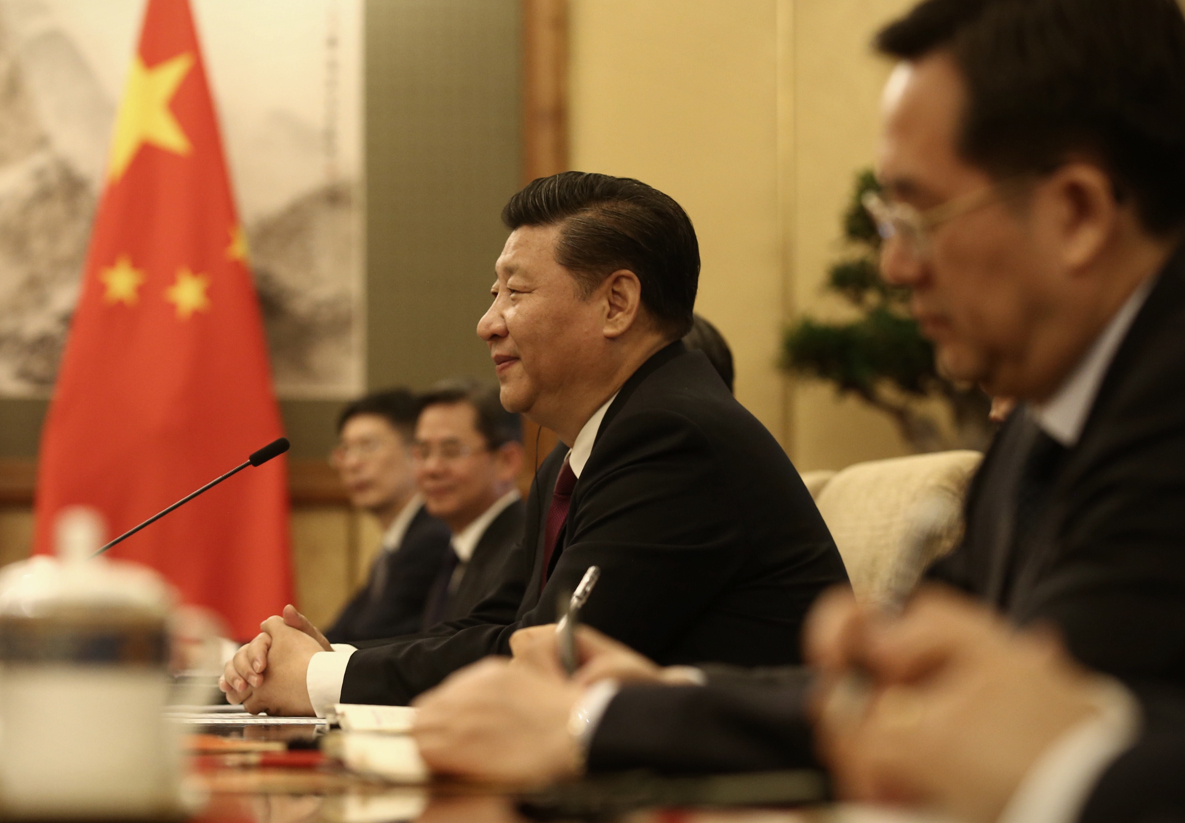Electric Vehicles: China's Growing Influence And The US's Future

Table of Contents
China's EV Manufacturing Powerhouse
China's dominance in the electric vehicle market is not just about market share; it's about manufacturing might and technological innovation.
Massive Production Capacity and Economies of Scale
China boasts a massive production capacity for electric vehicles, driven by significant government support and readily available supply chains. This translates to economies of scale that significantly lower production costs, making Chinese EVs highly competitive in the global market.
- Numerous EV factories: Hundreds of EV manufacturing plants operate across China, providing a vast production network.
- Gigafactories for battery production: China leads in battery cell production capacity, ensuring a consistent supply for its burgeoning EV industry.
- Government subsidies and incentives: Generous government subsidies and tax breaks have stimulated domestic EV production and consumption.
- Robust and integrated supply chains: China has cultivated a comprehensive supply chain for EV components, from raw materials to finished parts, creating a cost-effective ecosystem.
Technological Advancements and Innovation
Beyond sheer volume, China is making significant strides in EV technology. Investments in research and development are driving advancements in battery technology, charging infrastructure, and autonomous driving systems.
- Key players in Chinese EV technology: Companies like CATL (batteries), BYD (integrated EVs), and NIO (premium EVs and battery-swapping technology) are global leaders.
- Advancements in battery density and lifespan: Chinese companies are continuously improving battery energy density and lifespan, leading to longer driving ranges and faster charging times.
- Government investment in R&D: Significant government funding fuels innovation in EV technology, fostering a competitive environment among domestic companies.
Dominance in the Supply Chain
China's influence extends to the control of critical raw materials and components crucial for EV manufacturing. This gives them a significant strategic advantage.
- Lithium mining and processing: China controls a significant portion of the global lithium refining capacity, a key component in EV batteries.
- Cobalt production and refining: A large percentage of global cobalt refining, another essential battery material, also takes place in China.
- Rare earth minerals: China dominates the global supply of several rare earth minerals crucial for EV motors and other components.
- Impact on global supply chains: This control over raw materials and components gives China considerable leverage in the global EV supply chain.
The US's Response to China's EV Leadership
The US is actively responding to China's dominance in the EV market, but faces significant challenges.
Government Policies and Incentives
The US government has implemented various policies and incentives to boost domestic EV adoption and manufacturing.
- Tax credits and rebates: Federal and state governments offer tax credits to encourage EV purchases.
- Infrastructure investments: Significant investments are being made to expand the nation's charging infrastructure.
- Loan programs and grants: Government programs provide financial support to EV startups and manufacturers.
- Regulatory frameworks: Regulations are being developed to standardize safety and performance requirements for EVs.
Investment in Domestic EV Production
US automakers and startups are investing heavily in expanding their domestic EV manufacturing capabilities.
- New factories and production lines: Major automakers are building new factories dedicated to EV production.
- Job creation in the EV sector: These investments are creating new jobs in manufacturing, engineering, and related industries.
- Partnerships and collaborations: Companies are forming strategic partnerships to share resources and expertise.
- Challenges in competing with China's low costs: The US faces challenges in matching China's lower production costs due to economies of scale and readily available supply chains.
Technological Catch-up and Innovation
The US is focused on technological advancements to compete with China's progress in EV technology.
- Focus areas for R&D: Research is concentrated on improving battery technology, autonomous driving systems, and charging infrastructure.
- Partnerships with universities and private companies: Collaboration between industry and academia is accelerating technological innovation.
- Challenges in attracting and retaining talent: Competition for skilled engineers and researchers is fierce, requiring strategies to attract and retain top talent.
Geopolitical Implications and Future Outlook
The competition between China and the US in the EV market has significant geopolitical implications.
Competition for Global EV Market Share
The race for global EV market dominance is intensifying, with both countries employing various strategies.
- Market share projections: Analysts project a continued growth in the global EV market, with intense competition between China and the US for market share.
- Strategies for market penetration: Both countries are employing strategies to expand their market presence globally.
- Impact on trade relations: The competition could impact trade relations between the two countries.
Energy Security and Dependence
The US's reliance on China for EV battery materials raises concerns about energy security and potential trade disputes.
- Strategies for diversification of supply chains: The US is exploring ways to diversify its supply chains and reduce reliance on China.
- Domestic sourcing of raw materials: Efforts are underway to increase domestic production of critical EV materials.
- Potential for trade disputes: The competition for resources and market share could lead to trade disputes between the two nations.
The Future of Electric Vehicles in the US
The future of electric vehicles in the US presents both challenges and opportunities.
- Potential for growth: The US EV market has significant potential for growth, driven by consumer demand and government policies.
- Areas requiring further investment: Continued investment in research, development, manufacturing, and infrastructure is crucial for success.
- Role of government policy: Strategic government policies are essential to support the growth of the US EV industry.
- Long-term competitiveness: The US needs to develop a long-term strategy to maintain competitiveness in the global EV market.
Conclusion: Navigating the Future of Electric Vehicles in the US
China's significant role in the global electric vehicle industry presents both opportunities and challenges for the US. The US must address the critical need for investment in domestic manufacturing, technological innovation, and strategic policy decisions to ensure long-term competitiveness in this rapidly evolving sector. The future of electric vehicles in the US hinges on a proactive and comprehensive approach to navigate the intensifying global competition. Learn more about the future of electric vehicles and the ongoing competition between China and the US. Stay informed about policy changes impacting the electric vehicle industry and the development of sustainable transportation solutions. The future of sustainable transportation depends on it.

Featured Posts
-
 A Modern Look At Alexandre Dumas The Count Of Monte Cristo
May 05, 2025
A Modern Look At Alexandre Dumas The Count Of Monte Cristo
May 05, 2025 -
 Bredli Kuper I Leonardo Di Kaprio Konets Bratskoy Druzhby
May 05, 2025
Bredli Kuper I Leonardo Di Kaprio Konets Bratskoy Druzhby
May 05, 2025 -
 Open Ai Simplifies Voice Assistant Creation 2024 Developer Event Highlights
May 05, 2025
Open Ai Simplifies Voice Assistant Creation 2024 Developer Event Highlights
May 05, 2025 -
 Severe Weather Threat In Nyc Monday Timing Impacts And What To Expect
May 05, 2025
Severe Weather Threat In Nyc Monday Timing Impacts And What To Expect
May 05, 2025 -
 Louisiana Derby 2025 Betting Odds Contenders And Kentucky Derby Outlook
May 05, 2025
Louisiana Derby 2025 Betting Odds Contenders And Kentucky Derby Outlook
May 05, 2025
